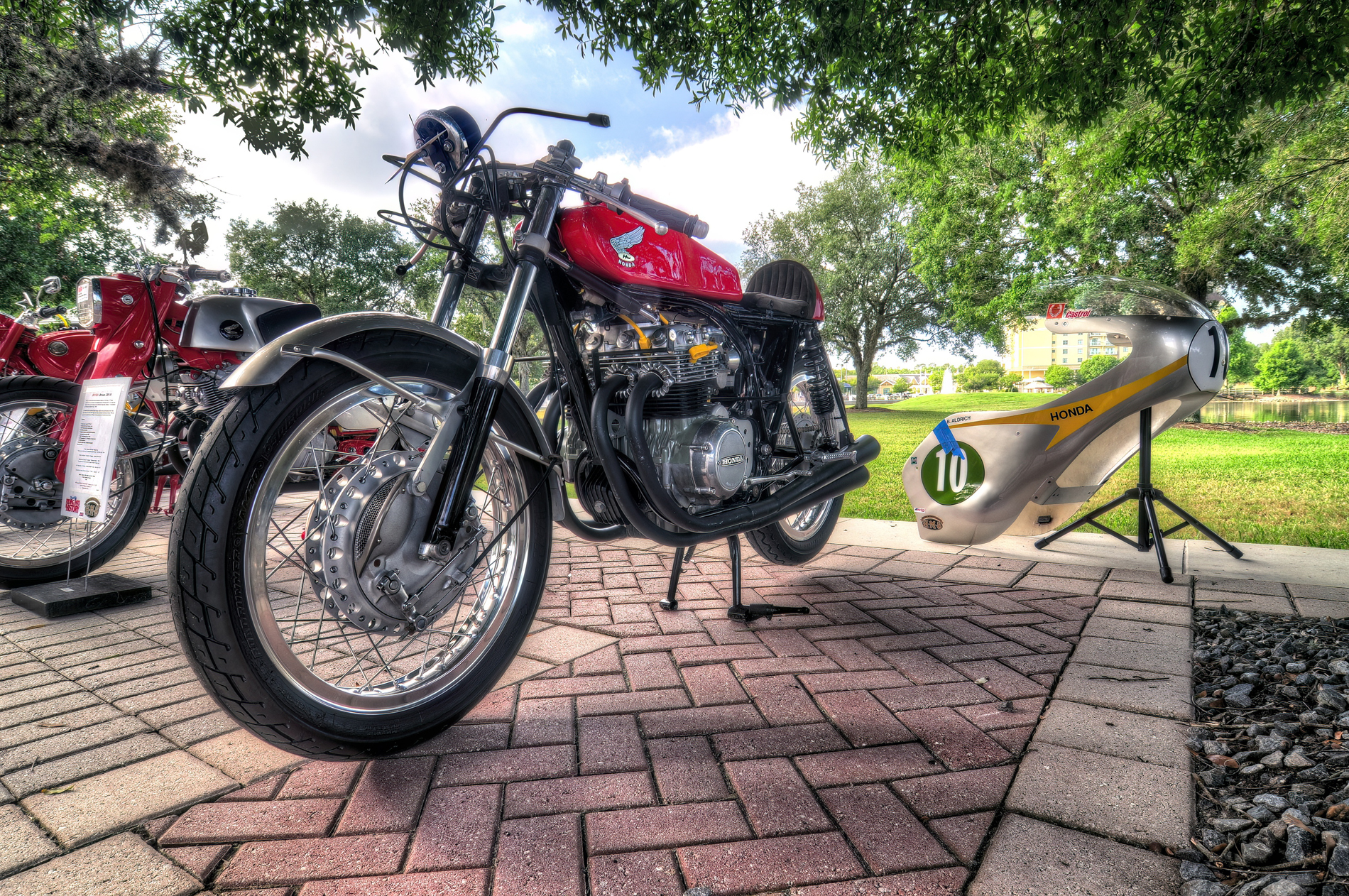
The 1961 Honda RC162 Cafe Racer is a 250cc Grand Prix motorcycle that was ridden by Mike Hailwood to win the 1961 250cc World Championship. It was the first Japanese motorcycle to win a World Championship.
Considered a revolutionary motorcycle for its time, it was powered by a 247cc, 4-cylinder, DOHC engine that produced 60 horsepower. With a top speed of 180 mph, the RC162 was also very light, weighing only 240 pounds and it won the 1961 250cc World Championship, as well as the 1962 250cc World Championship and 1961 Isle of Man TT.
It was is a very important motorcycle in the history of Honda being the first Japanese motorcycle to win a World Championship, and it helped to establish Honda as a major player in the world of motorcycling.
Background
- Manufacturer: Honda Motor Co., Ltd.
- Year: 1961
- Model: RC162
Specifications
- Engine: The RC162 is powered by a 249cc (0.25L) inline-four engine. It features a four-stroke design with a single overhead camshaft (SOHC) and produces approximately 32 horsepower.
- Transmission: The bike has a six-speed constant-mesh transmission, which was advanced for its time and contributed to its racing success.
- Chassis: The RC162 is built on a lightweight and robust frame designed for high-speed stability and handling. The frame's design focuses on reducing weight while maintaining strength.
- Suspension: The front suspension consists of telescopic forks, while the rear uses a twin shock setup, both designed for improved handling on the racetrack.
Design and Features
- Body Style: The RC162 features a sleek, aerodynamic design that was optimized for racing performance. Its bodywork includes a streamlined fairing and a distinctive, racing-inspired aesthetic.
- Design Elements: The bike’s design emphasizes lightness and aerodynamics, with a minimalistic approach to reduce drag and increase speed. The racing number plates and colors are iconic, often seen in a classic red and white livery.
- Cafe Racer Adaptations: As a cafe racer, the RC162 might be modified to suit street use. Typical modifications include stripping down unnecessary components, adding a more minimalistic seat, and integrating aftermarket parts to enhance performance and style.
Performance
- Speed: The RC162 was capable of achieving speeds of around 120 mph (193 km/h), making it competitive in the racing world during its time.
- Acceleration: The bike’s acceleration was impressive for its size, with quick throttle response and high-revving capabilities thanks to its racing-tuned engine.
- Handling: The RC162 was designed with exceptional handling characteristics, featuring precise steering and stability at high speeds. Its lightweight frame and advanced suspension setup contributed to its agility.
Historical Significance
- Racing Success: The Honda RC162 was notable for its success in racing, particularly in the 1961 Grand Prix season. It helped establish Honda’s reputation in the world of motorcycle racing.
- Engineering Milestone: The RC162 was a milestone in Honda's engineering achievements, showcasing their commitment to innovation and performance in the competitive motorcycle racing scene.
- Cafe Racer Influence: The RC162 has influenced the cafe racer culture due to its classic design and performance. Enthusiasts often look to vintage race bikes like the RC162 for inspiration when building custom cafe racers.
Legacy
- Collector's Item: Original RC162s are highly sought after by collectors and vintage racing enthusiasts due to their historical significance and racing pedigree.
- Cultural Impact: The RC162's design and performance have left a lasting impression on motorcycle culture, contributing to the development of cafe racer aesthetics and performance standards.
- Enduring Appeal: The RC162's blend of racing heritage and sleek design continues to captivate motorcycle enthusiasts and collectors, ensuring its place in the annals of motorcycle history.
Summary
The 1961 Honda RC162 is a remarkable example of early 1960s motorcycle racing technology and design. With its powerful inline-four engine, aerodynamic bodywork, and advanced handling characteristics, it stands out as a significant achievement in Honda’s racing history. Its influence on cafe racer culture and its status as a collector’s item underscore its lasting impact on the world of motorcycles.
You may purchase a print of the 1961 Honda RC162 Cafe Racer in our online gallery.
#ridingintohistory

